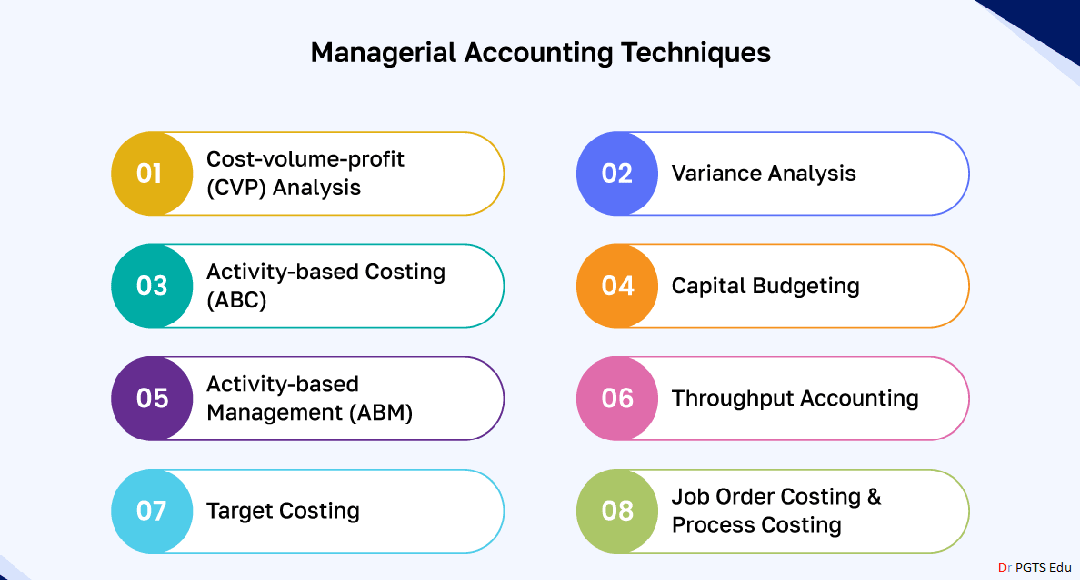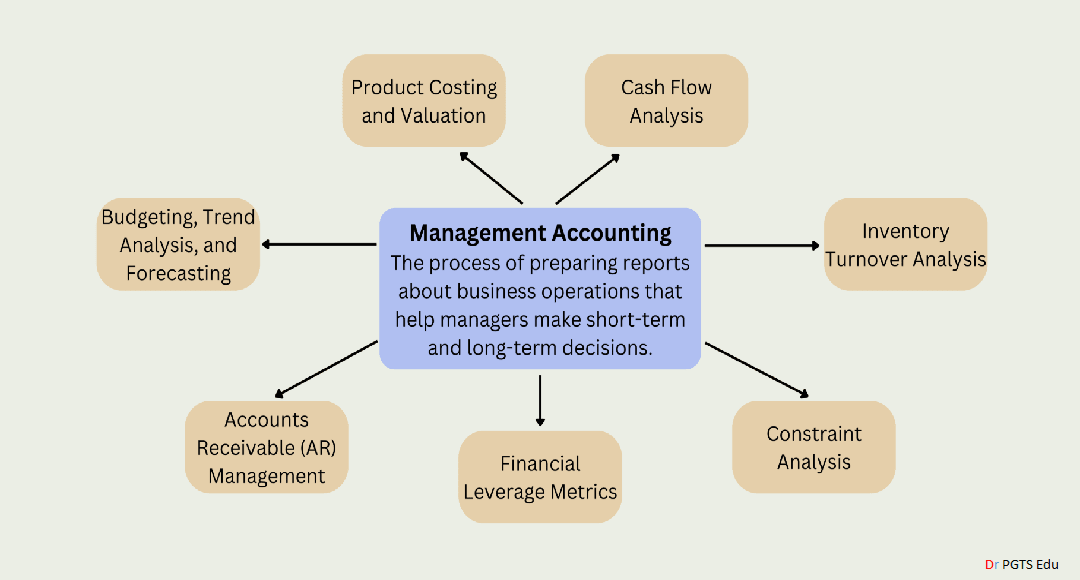management accounting in today’s fast-paced business world, managing finances efficiently is crucial for survival and growth. One of the most powerful tools for financial planning and decision-making is management accounting. It helps businesses track expenses, optimize resources, and make data-driven decisions. This article explores how management accounting can save your business thousands by improving cost control, budgeting, and performance evaluation.
What is Management Accounting?
Management accounting refers to the process of preparing and analyzing financial data to assist managers in making informed business decisions. Unlike financial accounting, which focuses on external reporting, management accounting provides internal insights to enhance efficiency and profitability.
Characteristics of Management Accounting
- Decision-Oriented – It provides managers with the necessary data to make strategic decisions.
- Future-Focused – Unlike financial accounting, which looks at past performance, management accounting emphasizes future projections.
- Flexible – It does not adhere to standardized formats like financial statements, allowing businesses to tailor reports to their needs.
- Confidential – The data is primarily used internally and is not shared with external stakeholders.
- Integrated with Other Functions – It combines financial and non-financial information for a holistic business view.
Secrets of Effective Management Accounting
1. Cost Control and Reduction
Management accounting helps businesses identify areas of overspending and cut unnecessary costs. By analyzing costs using Activity-Based Costing (ABC) or Variance Analysis, companies can make data-driven decisions to optimize expenses.
2. Budgeting and Forecasting
Accurate budgeting is key to financial stability. Zero-based budgeting (ZBB) and flexible budgeting are common management accounting techniques that ensure businesses allocate resources effectively, preventing overspending and financial leaks.
3. Profitability Analysis
Using break-even analysis, businesses can determine the minimum revenue required to cover costs. This helps in pricing strategies and identifying the most profitable products or services.

4. Performance Measurement
Key Performance Indicators (KPIs) like Return on Investment (ROI), Gross Profit Margin, and Working Capital Ratio help businesses track performance and make necessary adjustments.
5. Strategic Decision-Making
With trend analysis and financial modeling, businesses can predict market movements and adjust strategies accordingly. This helps companies stay ahead of competition and improve financial sustainability.
Types of Management Accounting
- Cost Accounting – Tracks and controls costs to improve profitability.
- Financial Planning and Analysis (FP&A) – Helps in forecasting and budgeting.
- Inventory Management Accounting – Ensures optimal stock levels to prevent shortages or excess.
- Cash Flow Management – Ensures smooth financial operations by tracking cash inflows and outflows.
- Responsibility Accounting – Assigns financial responsibility to different departments to improve accountability.
Management Accounting Functions
Planning: Helps in setting financial goals and resource allocation.
Controlling: Tracks expenses and ensures they remain within the budget.
Decision-Making: Provides data for strategic business decisions.
Risk Management: Identifies financial risks and provides mitigation strategies.
Performance Evaluation: Assesses financial efficiency and productivity.
Recent Trends in Management Accounting in India
1. Digital Transformation
Indian businesses are increasingly using AI-powered analytics and cloud-based accounting software to improve financial decision-making.
2. Sustainability Accounting
With growing environmental concerns, Indian businesses are integrating Environmental, Social, and Governance (ESG) factors into their financial planning.
3. Big Data & Predictive Analytics
Data analytics tools are helping businesses analyze large volumes of financial data for better decision-making.
4. Automation and AI in Accounting
Automation is reducing manual errors and improving efficiency in financial reporting and analysis.
5. Integration of GST and Compliance Management
With the implementation of Goods and Services Tax (GST) in India, businesses are leveraging management accounting tools to ensure compliance and optimize tax savings.
Management accounting is a game-changer for businesses looking to optimize costs, improve efficiency, and enhance profitability. By leveraging budgeting, cost control, and performance measurement techniques, businesses can save thousands and stay financially resilient. With the rise of AI, automation, and data analytics in India, the future of management accounting looks even more promising.
Read also: Fundamentals of accounting fundamentals of cost accounting meaning of management accounting

